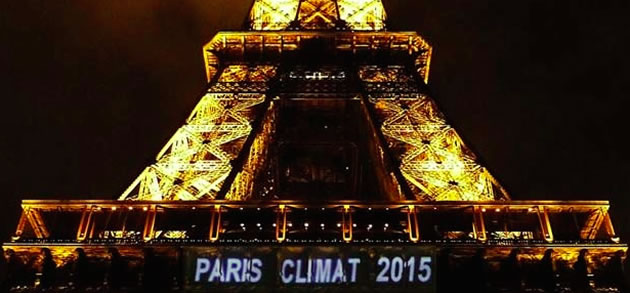Ode in memory of heroes of the struggle

 Elliot Ziwira @The Book Store
Elliot Ziwira @The Book Store
Now that Unity Day is upon us, it is worthwhile to remember the sacrifices that were made to make it possible for the Motherland to enjoy the peace and tranquility that currently prevail. Lives were lost and individual dreams shattered, all for the betterment of the well-being of the people of colour who for long were burdened under the yoke of colonialism.
However, there is something astounding or rather petrifying about war in that it leaves in its wake no victors but a trail of victims. Inasmuch as battles may be won, winning a war is never possible; and those that actually grace battlefields are not the ones who usually reap any fruits for their toils but those behind the scenes.
It is also sad that humanity that prides itself in being peace loving and adept at negotiation and championing democracy only realises the significance of the phenomena after war and not before -a case of “a bloodied peace”, as Mashingaidze Gomo calls it in “A Fine Madness” (2010), as men in colourful apparel ponder over peace corpses.
Those drawn into the negotiations are also not the ordinary soldiers who trade their limbs and souls for a mere existence in the Promised Land but military leaders and politicians.
War is cruel, brutal and futile and should never be used to settle scores.
A plethora of questions always abounds when it comes to the essence of war.
True as Albert Einstein posits “the important thing is not to stop questioning” and the best way to answer is to ask questions (Socrates).
Who really wins a war and at whose expense? If one really wins then what may be the reason for truces and peace treaties? The general who triumphantly brings back home a fraction of his soldiers, in what way is he better than the said loser who also sacrifices battalions?
Those that fall at the front with their ideological dreams still intact in their hearts, are they not the real heroes? And those soldiers who survive, can they really be called heroes? Considering that they come home traumatised as they relive the vicious circle of war in their daily tribulations with life as the ideologies they may have fought for become a ghastly travesty of the original, would they really consider themselves victors?
Such is the befuddling nature of war that literature captures in its quest to expose the truth – the real truth, for war cannot escape the censor of the artist who functions as “truth’s defence” (Pollard, 1970).
The portrayal of war in its futility embraced by Wilfred Owen in his poetry, especially in “Arms and the Boy”, also obtains in Alexander Kanengoni’s “Echoing Silences”, Freedom Nyamubaya’s “That Special Place” (2003) and Thomas Sukutai Bvuma’s “Every Stone that Turns” (1999).
In “Arms and the Boy”, Owen is contemptuous of the use of child soldiers or political or military expediency. An innocent boy whose “teeth seem for laughing round an apple” is trained to become “keen with hunger for blood; Blue with all malice; and thinly drawn with famishing for flesh”. As a result of the situation that he finds himself immersed in, the adolescent soldier is robbed of his innocence. Instead of being taught to value life, he is tutored to destroy it because to him all that resembles life is reduced to a madman’s caper – trivialised.
Alexander Kanengoni uses his own experiences as a soldier in Zimbabwe’s liberation struggle to poke at man’s worst foible – the desire to win through losing; euphemistically called war. To explore the irony of heroism he captures the story of Munashe whose tribulations before, during and after the struggle expose the hollowness of man’s heart, his propensity for sadism and his obsession with deceit.
The protagonist could have chosen to finish his university studies and better his life as an individual, but he opted to uplift his fellow black men who were toiling under the yoke of oppression. However, his experiences at the front awaken him to the colour-blind nature of oppression and voyeurism, as he suffers at the hands of his fellow comrades.
Nyamubaya also condemns such blatant exposure of brutality in “That Special Place”(2003) as she relives her sojourns in Mozambique, where the vulnerability of womanhood is laid bare. There is something really traumatic about war that only those who never experienced it cherish. But to those unfortunate enough; because of their unselfish dreams to elevate their kind; to be part of the gory violence, the provoking hopelessness and the inevitable dementia of a traumatised soul, there is nothing glorious about war of any nature.
Like Che in Nyamubaya’s “That Special Place” who abandons university studies for the higher calling, Munashe escapes from the reality of war through marijuana. Ironically, that same cruel reality sarcastically mocks him after the struggle, as society is indifferent to his suffering and offers him no solace at his hour of need. He painstakingly watches his dreams of a better life for his family; his people, escaping to the distant horizon where it remains etched like a mirage.
Inasmuch as the war is over to the rest, especially to those on the side-lines, to him its permanence establishes itself as his life has become a reincarnation of the battlefields which does not only put a damper on his marital life, but also worries his wife Chipo who also becomes a victim.
Munashe’s failure to secure a job in Harare and his subsequent employment in Mutare at the recommendation of the ghost of the Rhodesian soldier, who once helped him to escape to safety instead of killing him points to the futility of war, as a supposed enemy turns out to be a God-sent friend, and the presumed friend turns out to be a foe.
In “That Special Place” the narrator is raped and deflowered at 15 by the Camp Security Commander, Nyati, not because she is a woman but has also gone to school up to Form 3, which was jealously frowned at. Nyati “who used tortuous language, and made vulgar jokes about the inmates” and those of his ilk “with nothing in terms of brains … thrived on sadism and intimidation”.
Che, on the other hand, also suffers the same fate as Munashe as he fails to secure employment because of his lunacy “which arose at that special place: the place that many people in this world will never know or understand” – becoming a victim of the futility of war. He witnesses the dream, which in the first place spurred him to abandon the self for the majority, become a mist that threatens to obliterate his vision and drive him to the mire and the void beneath.
Thomas Bvuma in “Every Stone that Turns”(1999) also uses the autobiographical mode, like Kanengoni and Nyamubaya to capture his own experiences in the liberation struggle and merges it with the national discourse. Freeing himself from the restrictions of the traditional conventions of poetry, he explores war in its futility in a unique way.
In a compelling, contemptuous and combative tone, he is able to give a chilling and sad experience of war. He examines the brutal nature of imperialism and slavery which robs the African of his dignity and freedom and drives him to resort to arms.
However, war to him does not seem to give the revolutionary his freedom and dignity back, instead it dehumanises him, as he tries to counter its debilitating whims and the vagaries of nature.
The first person singular voice prevalent in the collection of poems tells the sad story of a soldier who confronts a two faced enemy whose complexity compounds his suffering.
Such is the brutal reality of war which reduces individuals to zombies as they try to locate their personal biographies on the national psyche for “there is no freedom without empowered choice” (Mashingaidze Gomo, in “A Fine Madness”).









Comments